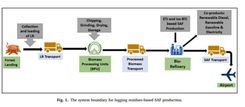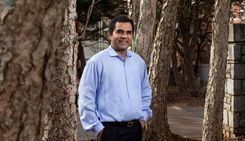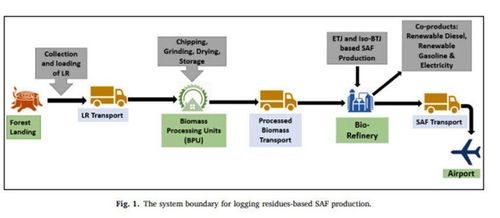Study suggests more cost-efficient, carbon friendly method for SAF production



This flow chart depicts sustainable aviation fuel production, beginning with collecting logging residue, processing, and transporting the fuel to the airport. (Graphic first published in Elsevier) / SOURCE: University of Georgia
August 6, 2024
BY University of Georgia
Advertisement
Advertisement
Related Stories
Neste extends relationship with World Fuel Services ensuring the availability of SAF at over 100 airports in Europe
Neste and World Fuel Services have extended their existing relationship with a five-year agreement that will expand the availability of Neste-supplied SAF at more than 100 airports across World Fuel’s U.K. and European network.
The House Committee on Agriculture on Feb. 13 released a draft Farm Bill that includes provisions that aim to expand the use of biochar and encourage growth and innovation in the biofuel, bioproducts and bioenergy industries.
The U.S. Energy Information Administration reduced its forecasts for 2026 and 2027 renewable diesel production in its latest Short-Term Energy Outlook, released Feb. 10. The outlook for sustainable aviation fuel (SAF) production was maintained.
Anaergia Inc., through its subsidiary Anaergia S.r.l., has entered into a contract with Circular Renewable Evolution S.r.l. to supply its proprietary anaerobic digestion technology as part of a €50 million initiative at Eni’s Gela biorefinery.
Biomass Magazine announced this week the eight companies selected to pitch to a group of angel investors and venture capital firms at the International Biomass Conference & Expo, taking place March 31 – April 2, 2026, in Nashville, Tennessee.





